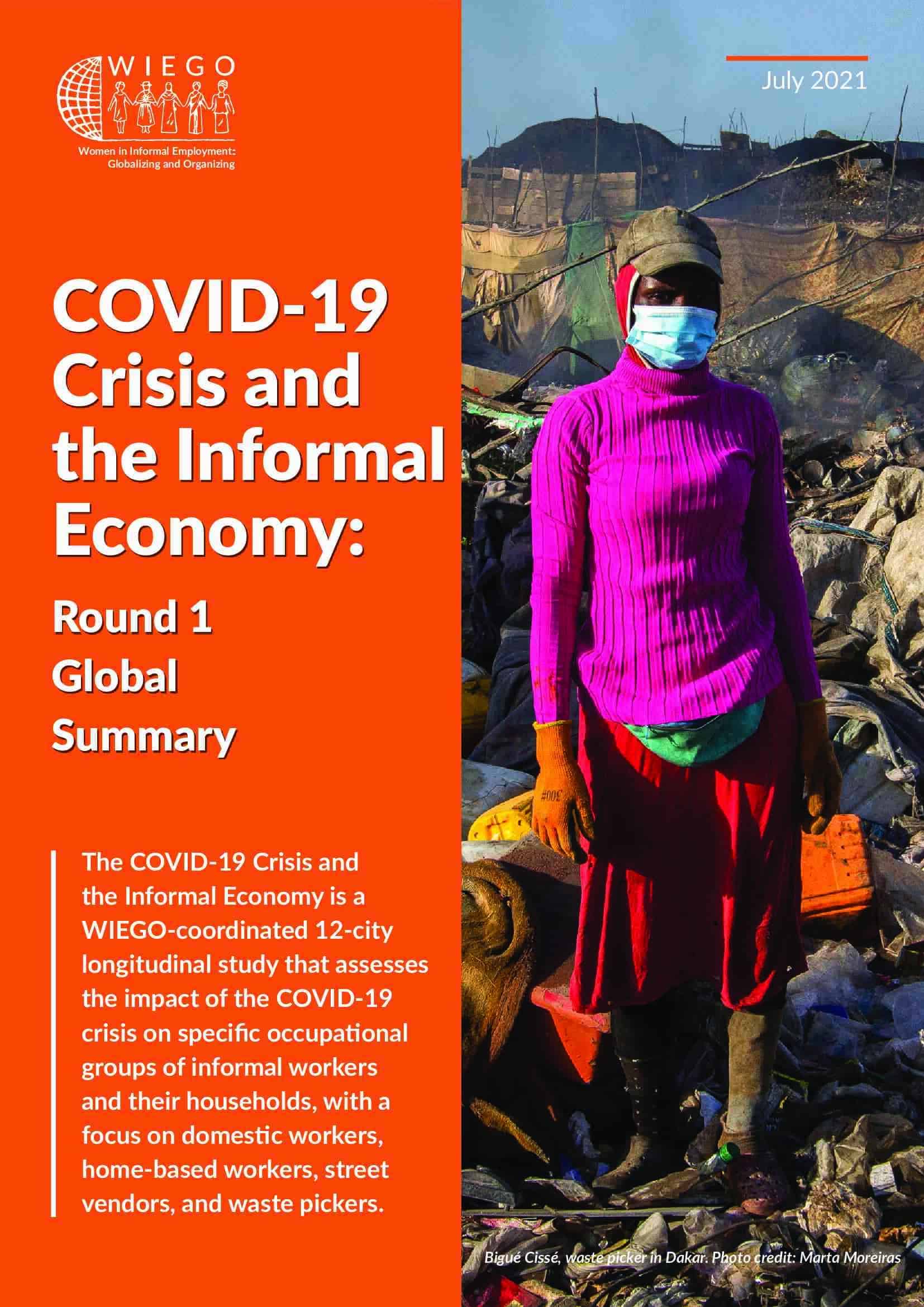COVID-19 and the Informal Economy: Round 1 Global Summary
The COVID-19 Crisis and the Informal Economy Study is a WIEGO-coordinated 12-city longitudinal study that assesses the impact of the COVID-19 crisis on specific occupational groups of informal workers and their households, with a focus on domestic workers, home-based workers, street vendors, and waste pickers. It presents the key findings of the first round of the survey and interviews—conducted in June and July 2020 (mid-year)—across all 12 cities and accompanies Fact Sheets which provide city-level results in greater detail. A second round of field research will be conducted in June and July 2021 to measure the ongoing impacts of the crisis.
This Summary Report was prepared by Ghida Ismail, Ana Carolina Ogando, Sarah Orleans Reed, Michael Rogan, and Marcela Valdivia. Laura Alfers, Martha Chen, and Jenna Harvey also contributed valuable reviews. Taluah Girard, Yola Verbruggen and Julian Luckham, respectively, coordinated production,edited, and designed the report.
Key Findings
- The impact on earnings among informal workers was as dire as projected by the ILO and other observers. The extent of disruption and its impact on different occupations varied considerably between cities, reflecting differences in intensity of restrictive measures and impacts on supply chains and markets.
- Occupational sector and differentiated characteristics within these sectors strongly influenced how the COVID-19 crisis impacted workers.
- Results confirm a disproportionate impact on women workers’ livelihoods.
- Increased reliance on asset-depleting coping mechanisms and household responsibilities have put considerable economic and emotional strain on the households of the working poor.
- In the absence of sufficient local government support, informal workers took their own health and safety initiatives and invested in protective protocols in spite of heavily constrained resources.
- Government relief efforts were an important source of support where they reached workers, but were limited and uneven in reach, and frequently undermined by local anti-worker policies.
- MBOs (Membership-Based Organizations) played a crucial role in providing support to workers to mitigate the economic, physical and mental health impacts of COVID-19.
Other Global Outputs
- Executive Summary available in English, French and Spanish
- WIEGO Working Paper 42: COVID-19 and Informal Work:Distinct Pathways of Impact and Recovery in 11 Cities Around the World
- City Fact Sheets
- Summary of Demands of informal worker organizations in English, French and Spanish
- All study materials
View list of all: Global Reports

